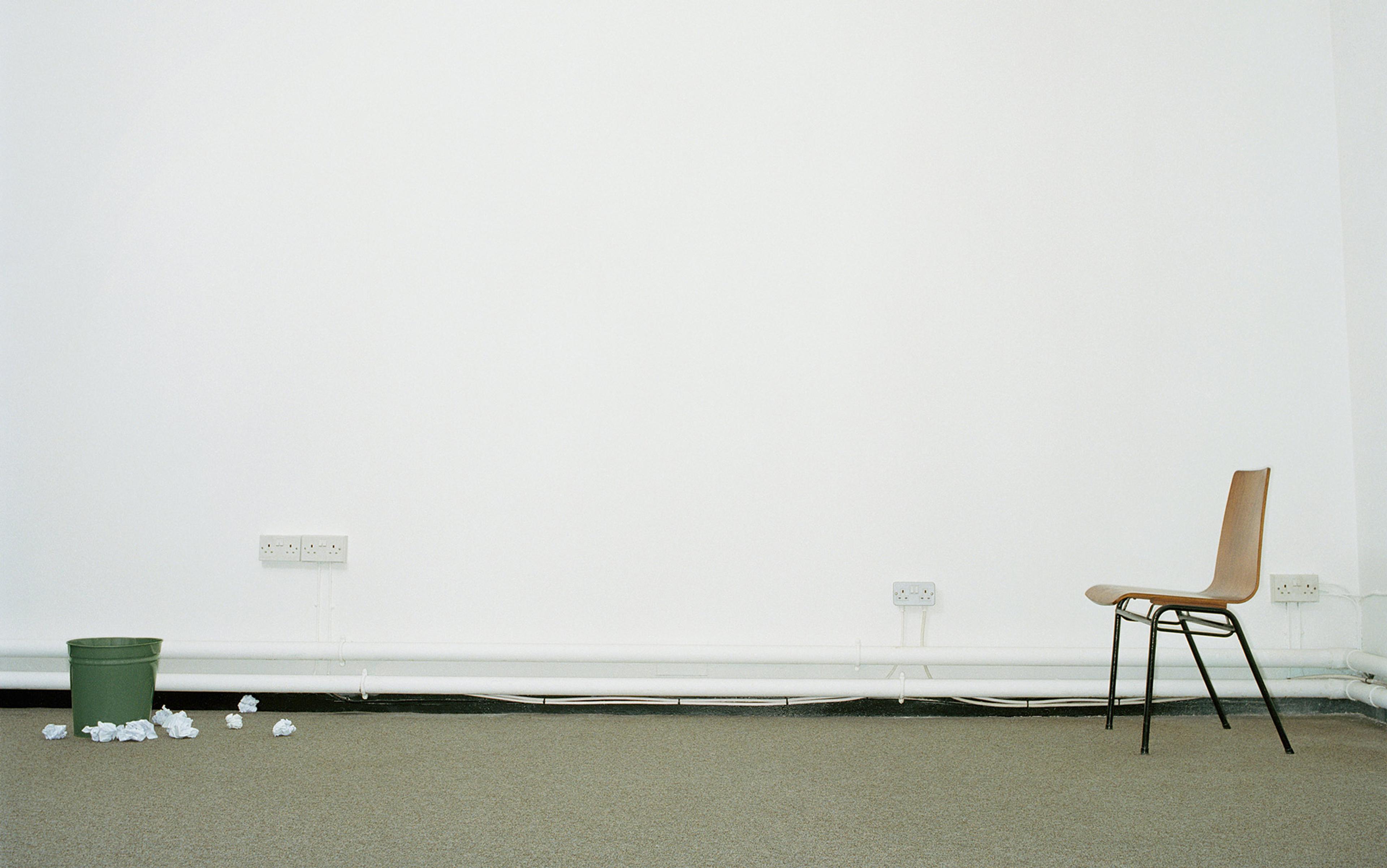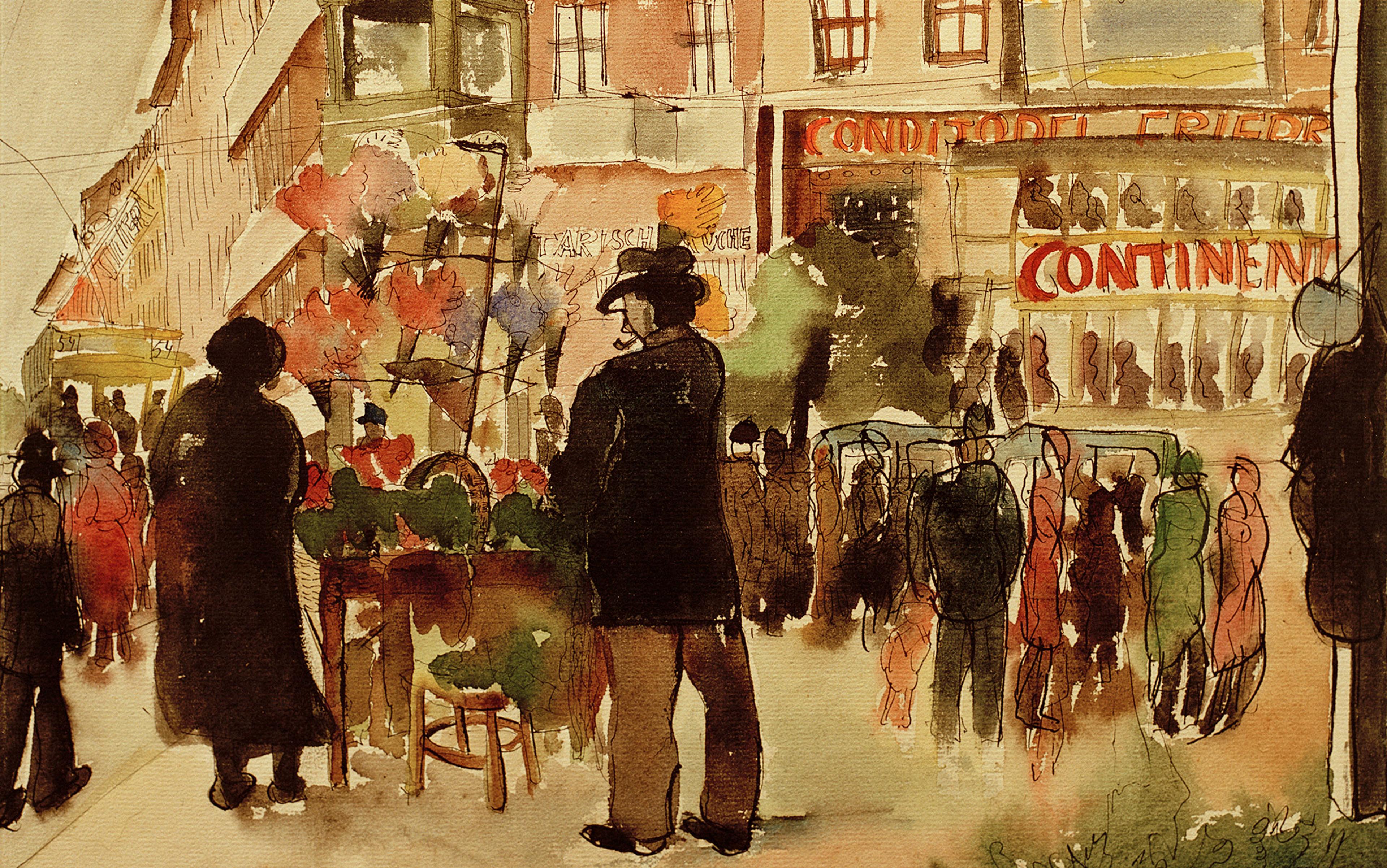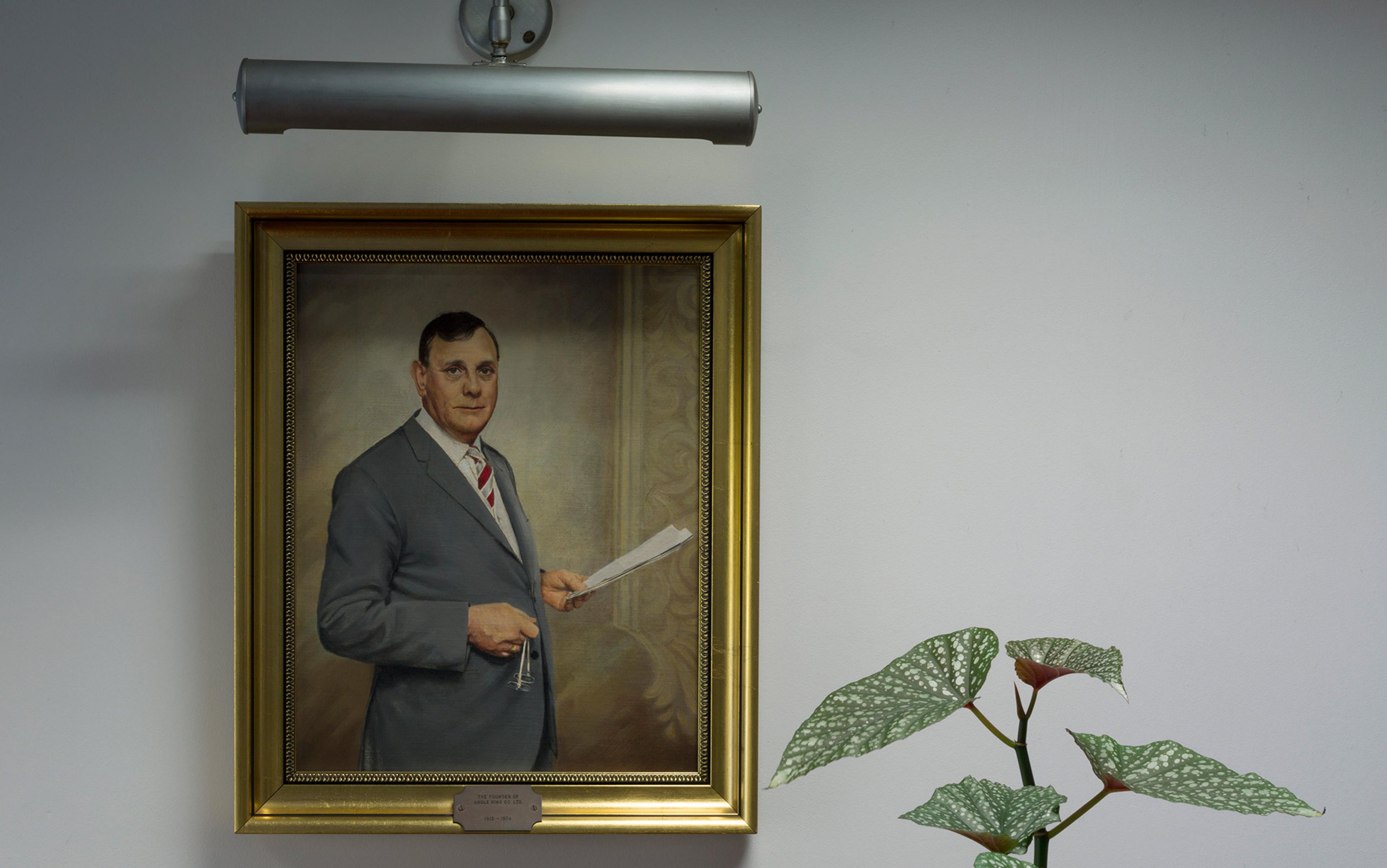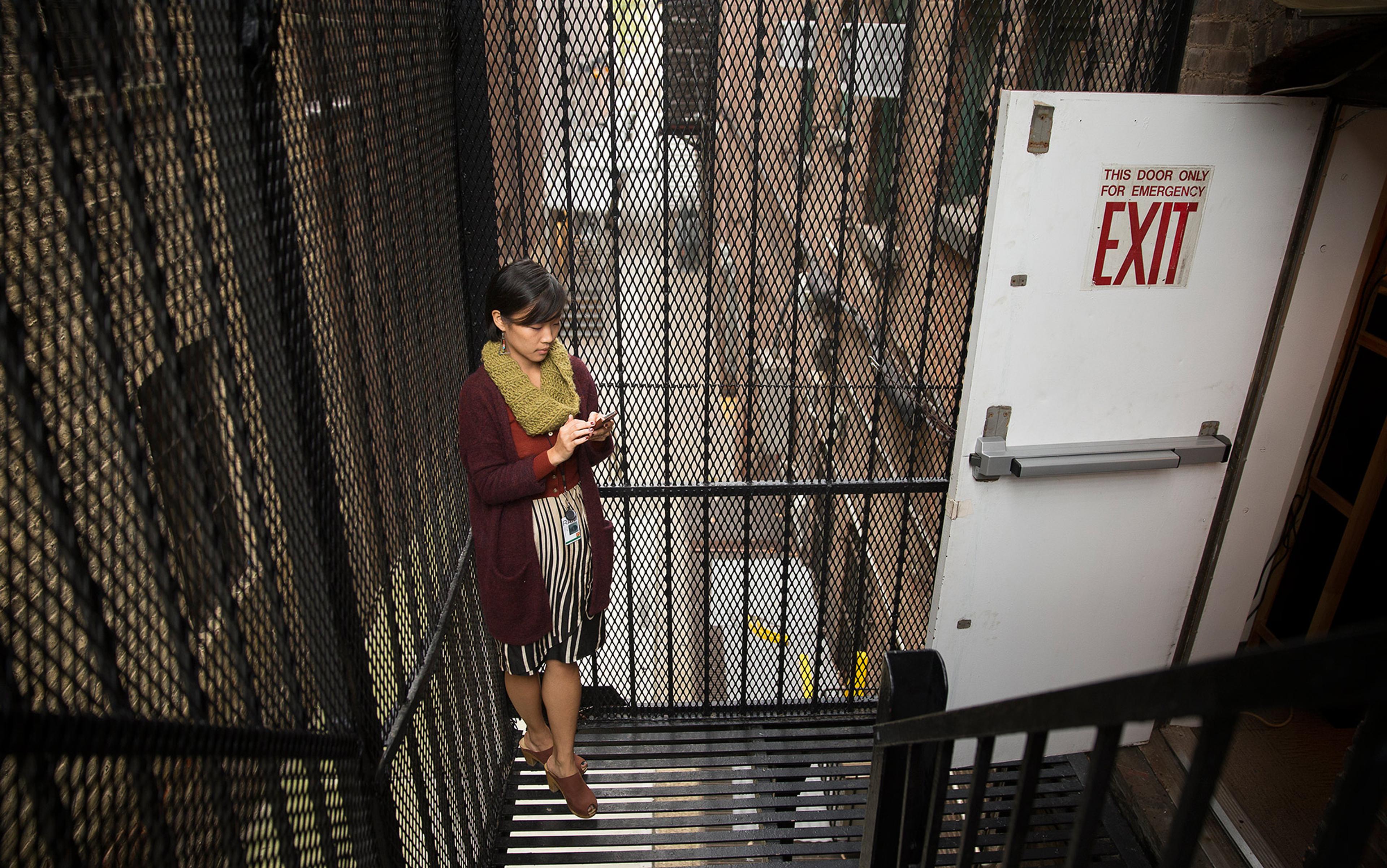Work is no longer working for us. Or, for most of us anyway. Citing lack of pay and promotion, more people are quitting their jobs now than at any time in the past 20 years. This is no surprise, considering that ‘real wages’ – the average hourly rate adjusted for inflation – for non-managers just three years ago was the same as it was in the early 1970s. At the same time, the increasing prominence of gig work has turned work from a steady ‘climb’ of the ladder into a precarious ‘hustle’.
Of the growing number of people working through apps like Uber or Taskrabbit, nearly 70 per cent of them say that they do so on the side, supplementing a main income that is too low to provide for life’s necessities. Even young and upwardly mobile professionals must change jobs, rather than stay in them, in order to grow in their careers. Almost perversely, the loss of stable careers is branded as a benefit. Sarah Ellis and Helen Tupper, both career consultants, argue that we ought to embrace these ‘squiggly careers’ as a new, more ‘flexible’ norm.
Politicians claim that the solution to our work problems is ‘more jobs’. But simply increasing the number of bad jobs won’t help us avoid the problems of work. What we need, it seems, is not more work, but good work. But what exactly is good work?
The United States Department of Labor identifies a ‘good job’ as one with fair hiring practices, comprehensive benefits, formal equality of opportunity, job security and a culture in which workers are valued. In a similar UK report on the modern labour market called ‘Good Work’ (2017), Matthew Taylor and his colleagues emphasise workplace rights and fair treatment, opportunities for promotion, and ‘good reward schemes’. Finally, the UN’s Universal Declaration of Human Rights has two sections on work. They cite the free choice of employment and organisation, fair and equal pay, and sufficient leisure time as rights of workers.
What all three of these accounts have in common is that they focus on features of jobs – the agreement you make with your boss to perform labour – rather than on the labour itself. The fairness of your boss, the length of your contract, the growth of your career – these specify nothing about the quality of the labour you perform. And yet it is the labour itself that we spend all day doing. The most tedious and unpleasant work could still pay a high salary, but we might not want to call such work ‘good’. (Only a brief mention is made in the Taylor report – which totals more than 100 pages – of the idea that workers ought to have some autonomy in how they perform their job, or that work ought not be tedious or repetitive.) This is not to say that the extrinsic aspects of work like pay and benefits are unimportant; of course, a good job is one that pays enough. But what about work’s intrinsic goods? Is there anything about the process of working itself that we ought to include in our list of criteria, or should we all be content with a life of high-paying drudgery?
Kant defines art as a particular kind of skilled labour
Philosophers try to answer this question by giving a definition of work. Since definitions tell us what is essential or intrinsic to a thing, a definition of work would tell us whether there is anything intrinsic to work that we want our good jobs to promote. The most common definition of work in Western thought, found in nearly every period with recorded writing on the subject, is that work is inherently disagreeable and instrumentally valuable. It is disagreeable because it is an expenditure of energy (contrast this with leisure), and it is instrumentally valuable because we care only about the products of our labour, not the process of labouring itself. On this view, work has little to recommend it, and we would do better to minimise our time spent doing it. A theory of work based on this definition would probably say that good jobs pay a lot (in exchange for work’s disagreeableness) and are performed for as little time as possible.
But this is not the only definition at our disposal. Tucked away in two inconspicuous paragraphs of his book about beauty, the Critique of Judgment (1790), is Immanuel Kant’s definition of work. In a section called ‘On Art in General’, Kant gives a definition of art (Kunst in German) as a subset of our more general capacity for ‘skill’ or ‘craft’ (note that Kant’s definition should not be limited to the fine arts like poetry or painting, which is schöne Künste in German, which he addresses in the following section of the book). In other words, Kant defines art as a particular kind of skilled labour. Kant’s definition of art as skilled labour will direct us to the intrinsic features of work that we ought to include in our conception of good jobs.
Kant defines art using his analytic method, which is a way of getting at what a thing is by distinguishing it from what it is not. His first distinction concerns the difference between things produced by natural forces on the one hand, and things produced by human effort on the other. Art, as skilled labour, is an instance of the latter. He writes:
By right we should not call anything art except a production through freedom, ie, through a power of choice that bases its acts on reason. For though we like to call the product that bees make (the regularly constructed honeycombs) a work of art, we do so only by virtue of an analogy with art; for as soon as we recall that their labour is not based on any rational deliberation on their part, we say at once that the product is a product of their nature (namely, of instinct).
The capacity that allows humans to create art is our freedom, our ‘power of choice’. This is what distinguishes human labour, which is free, from the labour of the bees, which Kant will go on to say is ‘constrained’ or ‘mechanical’. What enables humans to produce freely is that they raise their object in the ideal world first, as a concept or purpose in consciousness, before raising their object in the real world. This is what Kant means when he says that our act, our labour, is ‘base[d] … on reason’. Bees do not have this capacity for purposive activity, which is why we do not consider their products works of art, but merely effects of nature. For the bee, the honeycomb is a product of instinct. The bee has no choice but to produce according to the standards it has been given by nature. Since humans have the ‘power of choice’, we are ‘free’ to produce according to any concept or standard we desire. This means that, if we want, we can produce according to the bee’s standard (a point Karl Marx will go on to make in his 1844 Manuscripts).
Most workers do not have ‘the power of choice’ at work. Rather, that power resides exclusively with their bosses
Already then, we can see that Kant gives us a preliminary philosophy of work with his distinction between art (as skilled labour) and nature. Skilled labour is essentially purposive. The product of our labour is based on a purpose, and this purpose makes possible the product in a way that brute nature could not. To identify human labour with purposiveness is to highlight the importance of thinking in the labour process. Unlike the animal, for whom labour is a mere effect of nature, human labour is a product of thinking and acting, in coordination with each other. The more our thoughts and plans are reflected in the product of our labour, the more ‘human’ our labour is.
This insight has deep implications for the question of what makes work good, especially in light of capitalism’s division between the planning and the execution of labour. In capitalism, most workers are permitted to execute only their bosses’ purpose at work. They themselves do not determine what purpose to execute. Using Kant’s language, we might say that most workers do not have ‘the power of choice’ at work. Rather, that power resides exclusively with their bosses. This makes many workers mere animals at work, since what is produced is ‘not based on any rational deliberation on their part’. So, while labour in capitalism is determined by some purpose (ie, the bosses’), it is importantly not the workers’ purpose.
Take a look at some of the more prominent theories of good jobs and you will be hard pressed to find any reference to purposiveness. That is because the modern organisation of work is so thoroughly structured by this division of labour into purposive planning by management on the one hand, and brute execution by workers on the other, that it is often taken for granted. The strictness of this division may vary by workplace, but the very idea of management presupposes the categories of planner and executor. Yet, here we see that such an organisation of work prevents many of us from exercising our distinctly human capacity for purposive activity, making our work feel ‘constrained’ and ‘mechanical’ rather than ‘free’.
Within the domain of things produced through human effort, Kant makes a further distinction between things that can be produced merely by following pre-given rules, and those that require some kind of judgment or creativity. Kant calls the former ‘scientific’ and the latter ‘technical’. Art, as skilled labour, is technical. He continues:
Art, as human skill, is also distinguished from science ([ie, we distinguish] can from know), as practical from theoretical ability, as technic from theory (eg, the art of surveying from geometry). That is exactly why we refrain from calling anything art that we can do the moment we know what is to be done, ie, the moment we are sufficiently acquainted with what the desired effect is. Only if something [is such that] even the most thorough acquaintance with it does not immediately provide us with the skill to make it, then to that extent it belongs to art.
Art is distinguished from science because in order to engage in artistic production, we need more than a theoretical understanding of what we are trying to produce. There is a gap between ‘know[ing] what is to be done’ and our actual ability to do it. Art, in other words, involves productive indeterminacy.
Kant’s idea that art is productively indeterminate is a consequence of his claim that: ‘There can be no objective rule of taste, no rule of taste that determines by concepts what is beautiful.’ For our painter, this means that the process by which she paints something beautiful cannot be codified in rules. Rather, she must use her ‘genius’, Kant’s term for our ‘talent for producing something for which no determinate rule can be given’.
As Kant might say, ‘even the most thorough acquaintance with [the manual] does not immediately [fix the bike]’
At first glance, the art-science distinction does not seem relevant to the question of work. Composing the electrical wiring of a home can be taught by rules in a way that composing a beautiful poem cannot. Perhaps this is where our artistic concept of work breaks down. Kant disagrees, citing shoemaking as a kind of work that falls on the ‘art’ side of the art-science distinction. The implication is that any kind of work that involves indeterminacy in how to produce the object in question has an artistic element.
Consider Matthew Crawford’s example of the motorcycle mechanic in his essay ‘Shop Class as Soulcraft’ (2006): a mechanic must check the condition of a starter clutch on a decrepit 50-year-old motorcycle. In order to do so, however, he must remove the engine covers, which are fastened with screws that are stripped. Drilling out the screws risks damaging the engine. ‘The factory service manuals tell you to be systematic in eliminating variables,’ Crawford writes, ‘but they never take such factors into account.’
Crawford’s mechanic may know what ‘the desired effect’ is – fix the bike – but the way to achieve that effect is not fully specified by any set of rules he has when he starts working. The mechanic lacks, in Kant’s words, ‘the skill to make it’. He might have great familiarity with the motorcycle service manuals, but as Kant might say, ‘even the most thorough acquaintance with [the manual] does not immediately provide us with the skill to [fix the bike].’
There are practical problems – problems of implementation, of contingent and unpredictable environments – that cannot be grasped scientifically (ie, theoretically) prior to production. This means they cannot be taught by a manual, a supervisor, or a master craftsman, but must be learned firsthand. It is the difference between ‘knowing’ about something and the ‘practical ability’ of performing it.
The term I have been using to describe the kind of practical problems one encounters at work is ‘productive indeterminacy’. Kant’s distinction between art and science tells us that work – which falls on the ‘art’ side of the distinction – is productively indeterminate because the process of working cannot be exhausted by explicit instruction. Put another way, there is always a gap between, on the one hand, the rules and instructions for how to perform one’s work and, on the other, what is required to actually produce the desired product or service. Here the similarity to Kant’s artist comes into relief. When the artist sets out to make something beautiful, she is faced with the productive indeterminacy of knowing the outcome to be achieved yet having no rules to follow to achieve it. Instead of following rules, she must use her judgment to reflect on (Kant’s term) which rules – the artistic techniques, styles, etc – are best suited to the outcome she desires. In Kant’s words, she must use her ‘genius’.
It is the same with our worker. Reconsider the motorcycle mechanic. The mechanic has a suite of ‘rules’ – common techniques and tests – he learns as an apprentice. But, when faced with an actual motorcycle, he must reflect on which of these rules and techniques to apply to an indeterminate work environment. At the outset, the mechanic does not know in fact which technique is correct. He must use his judgment to figure out which is most appropriate given the circumstances.
And it isn’t just manual labour that requires judgment and creativity. All jobs have indeterminacies that cannot be resolved through mere rule-following. The psychodynamic theory of work, a prominent thesis about work in contemporary French social theory, argues that ‘no amount of prescription, however substantial or refined, can foresee all the possible variations in the concrete, real context in which the [work] is to be performed.’ For the proponents of the psychodynamic theory, adjusting for these ‘variations’ is just the quintessential experience of working.
What does Kant’s idea of productive indeterminacy – drawn from his distinction of art from science – tell us about good work? According to Kant, overcoming productive indeterminacy through judgment rather than rule-following is an essential part of what it means to work. The use of judgment at work makes our labour feel free, creative and deliberative. If, on the other hand, our judgment at work is blocked, our work can feel less ‘playful’ and artistic, and more ‘mercenary’ (a distinction Kant makes in the next paragraph).
That any one particular job involves a lot of rule-following need not be troubling for our account of good work. Some socially necessary jobs simply don’t require a lot of judgment, or can be performed only when standardised. Trash collection appears to have both of these features. It makes sense that regulations for trash collection – whether to pick up, eg, construction waste – across an entire city ought to be determined by a central agency, rather than by individual sanitation workers. If Kant is right, the standardisation of trash collection may make such work feel tedious. But this need not mean that trash collection is simply ‘bad work’. Recall that the use of judgment is not the only desideratum of good work. In exchange for performing socially necessary but tedious work, sanitation workers would ideally be compensated with additional pay, benefits, and safe and regular working conditions.
In these jobs, managers exercise their judgment ahead of time so workers don’t have to
The problem with rule-following, however, is that the modern organisation of work appears to reduce, in general, the level of judgment required by workers. Managers regulate the labour process in the name of efficiency and standardisation, but in doing so they appropriate many of the decisions workers would have otherwise made. Put another way, management transforms workers from judgers to rule-followers.
The most extreme way you might become a rule-follower at work is if your job is scientifically managed. The central idea of Frederick Taylor’s scientific management is that managers of labour, not the labourers themselves, ought to control the labour process to the greatest extent possible. ‘The work of every workman,’ Taylor writes, ‘is fully planned out by the management … and each man receives … complete written instructions, describing in detail the task which he is to accomplish, as well as the means to be used in doing the work.’ Taylor’s vision of a scientifically managed workforce is one in which management decides ahead of time exactly what work to do and how to do it. But such control over the labour process leaves the worker with little to do but follow management’s rules. Importantly, scientific management tries to anticipate any and all indeterminacies in the labour process and incorporate them into the workers’ instructions ahead of time. This means it is the manager, not the worker, who gets to use their judgment at work. The result is that workers are faced with less productive indeterminacy, and are robbed of whatever opportunities for judgment and creativity their work once afforded them.
Such scientific management of labour is still, as Harry Braverman writes in Labor and Monopoly Capital (1974), the ‘bedrock of all work design’, even if the term ‘Taylorism’ has fallen out of fashion in management circles. You can find its most extreme forms in Emily Guendelsberger’s investigation of low-wage work in On the Clock (2019), but you don’t need to go to an Amazon warehouse or a McDonald’s kitchen to see its effects. Even highly coveted jobs have elements of scientific management, like sales jobs with pre-written scripts and quotas. Importantly, in these jobs, managers exercise their judgment ahead of time so workers don’t have to.
Freedom and discretion at work have always been sources of conflict between labour and management. Just look at the history of the labour movement and you will find countless examples of conflict over who determines the work process. Yet this conflict seldom informs our theories of good jobs. Kant’s idea that workers must resolve productive indeterminacies by judging rather than following rules fixes this. Of course, work that involves judgment is not enough. A job with opportunities for judgment but terrible pay is no better than its converse. But Kant’s theory urges us to be sceptical of the call for ‘more jobs’ if no consideration is given to what those jobs will be like.






